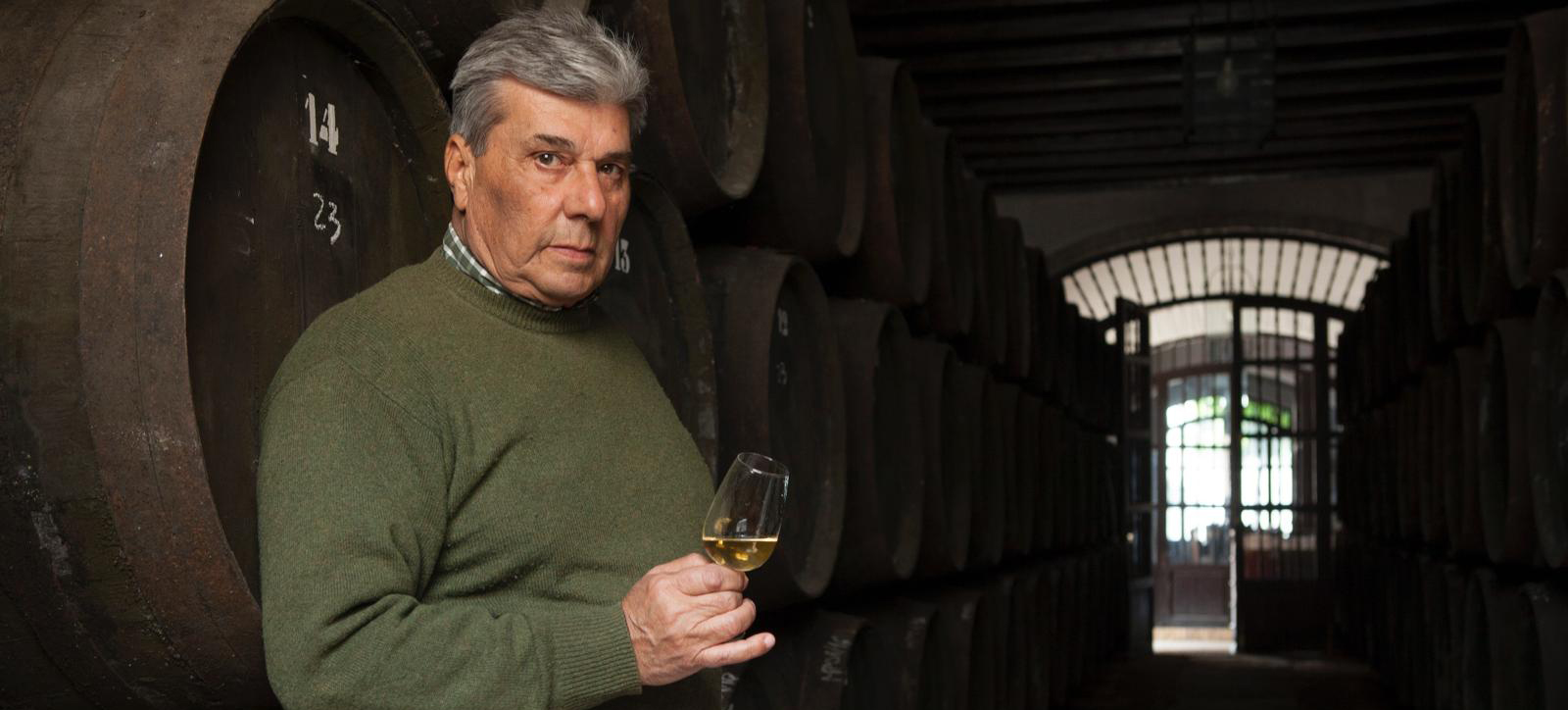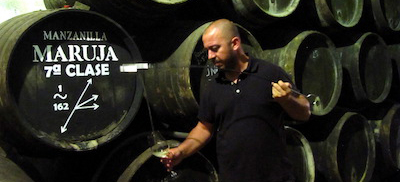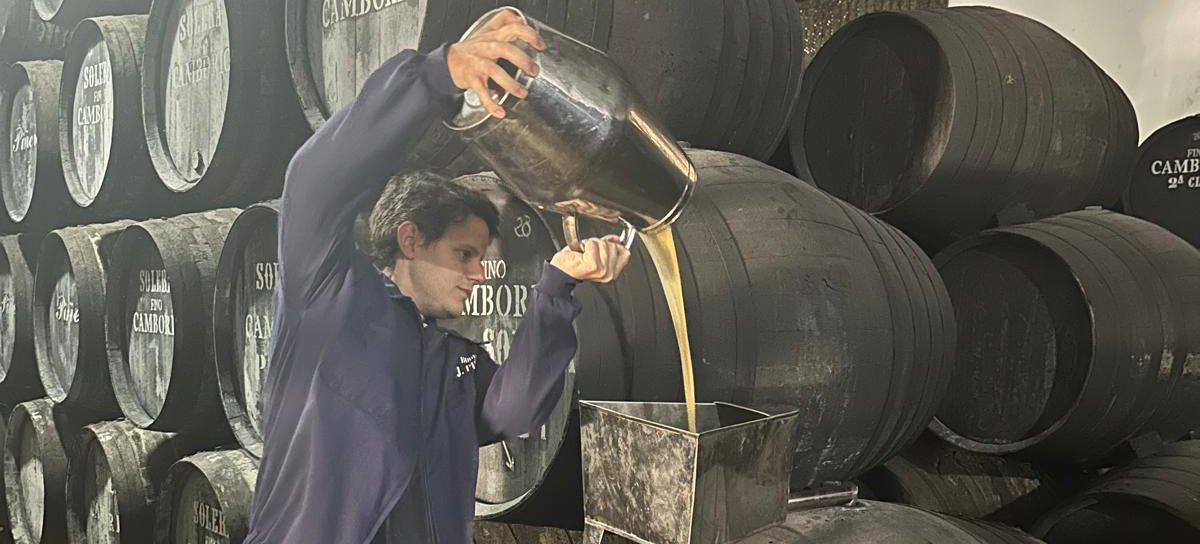In Jerez, often what is “old” becomes “new” again. This is particularly evident in the moment, where we’ve seen the revitalization of Vinos de Pasto (white wines) and in the production of unfortified sherries made using traditional methods that predate the formalization of the solera system. Today, there is a growing number of young bottlers of artisanal, classically fortified, and solera-aged sherries. The wines of Juan Piñero are just that.
At the winemaking helm of this project is Ramiro Ibañez, famous for his work with Willy Perez in De la Riva and on his own with Cota 45/UBE winery. Ramiro arrived at Juan Piñero in 2013, but the story of the founding of the bodega goes back further in time.
In 1992, Juan Piñero, a Sherry fan and a construction company owner, purchased the former bodega of Argueso in Sanlucar. The winery was originally built in the 1920s-30s and is a replica of the famous Barbadillo La Arboledilla (1876). Piñero repaired the bodega and began his Sherry business venture as an “Almacenista”, cellaring and caring for wines mostly for Hidalgo-La Gitana. In 2000, when Domecq closed its doors and its assets were sold, Piñero was able to purchase the rights to two of this historic house’s most famous brands – Maruja Manzanilla & Camborio Fino. In addition, and most importantly, Juan was able to purchase one of their warehouses in Sanlucar containing some excellent solera wines. Intending to further expand his sherry business into Jerez proper in 2007, Piñero purchased the old bodega of Angel Zamorano in the old quarter of Jerez. With Ramiro coming on board in 2013, all the pieces were in place to make his own wines. The first release of Maruja Manzanilla was in 2013, and Camborio Fino in 2014.
Ramiro not only manages the soleras but sources the wines that refresh them. Juan Piñero does not own any vineyard land or grow grapes, so they have to carefully source all the wines for the project. Here, the quality of wines as well as vineyard/Pago play critical roles in his choices. The styles of the wines are very traditional and showcase age in all cases. Maruja is a Manzanilla with an average age of 8-9 years. Its solera system is only 8 criaderas/solera. It is a slightly golden colored Manzanilla with structure and a spine of salty energy. Camborio Fino had its origins in the wines from Angel Zamorano in Jerez. Ramiro tends to bottle and refresh the solera for this wine a bit less often than usual, which nudges the wines to the edge of oxidation while keeping the flor alive, much like the old artisanal finos of the past. This gives the wine extra complexity and helps to showcase its depth and power.
In 2017, the Jerez bodega was sold to Peter Sisseck and Carlos del Rio to be the creation of their sherry project. In the sale, half of the stocks of Camborio became their wine’s starting point, and the other half was moved to Sanlucar to continue making Juan Piñero Camborio Fino there.
In addition to the excellent Manzanilla and Fino, there are two 12-year-old sherries branded under the name “Great Duke” – an Amontillado and Palo Cortado. Both these wines are fabulous, small production examples of their categories. Both the Amontillado and Palo Cortado are extensions of Maruja and have wines from Sanlucar in the program, so they share the same pedigreed fruit and aging, but in an appropriately oxidative style. This gives both wines an underlying salinity and a marine quality, with an elegance influenced by the cooler climate in Sanlucar.
Tragically, in 2021, Juan Piñero and his wife, Mercedes, both got sick with COVID, and Juan passed away that same year. His wife, Mercedes, and his children continue the work of the winery with the help of their extended family. While small artisanal sherry makers have largely become a thing of the past in a region dominated by large industrial products, Juan Piñero and Polaner are bringing back this important and delicious part of Jerez’s history.




